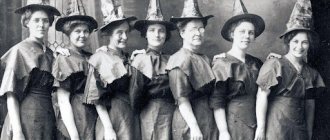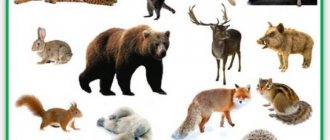Summary of the conversation-reflection “My rights and responsibilities.”
Conversation - reasoning with students on the topic:
"My rights and responsibilities"
Target:
Identification of the development of children's initial legal knowledge.
Tasks.
- To form an idea of the UN Convention on the Rights of the Child as a document that protects them; to form stable concepts that every child has rights and responsibilities.
- Form an idea of your name, of your family as people who live together, love each other, and take care of each other.
- To develop the child’s desire to realize his rights without violating the rights of the people around him.
- Develop the ability to negotiate and coordinate your actions with the actions of your comrades, independently determine your capabilities in choosing a task.
- To cultivate respect and tolerance for people regardless of their social origin, race and nationality, language, gender, age, personal and behavioral identity.
Progress
of the conversation
Hello guys!
Educator:
Listen to the poem:
As soon as the child appears And barely begins to breathe He already has rights from the cradle.
How many of you know what rights children have? (Children's answers)
Educator:
Now I will tell you the most important thing that you need for a happy life from the moment of birth. These are your rights. Rights are something without which a person cannot live with dignity. Rights do not need to be bought, earned or inherited, they belong to you simply because you are human. They cannot be taken from us. The same rights belong to all children, regardless of nationality, gender, or age.
Educator:
What is the name of the document where your rights are written?
—Convention on the Rights of Children
(Educator:
Absolutely right. The Convention on the Rights of the Child is an international treaty protecting the rights of all children on our planet, no matter where they live, what color their skin is, what language, gender, nationality, and no matter who their parents are, poor or rich. The Convention is an international law for children of all countries. Any person, adult or small, must respect the rights of the child as set out in the Convention and not violate them!
Questions :
1. Do you have a name?
2. Who gave you your name? (parents)
The child's name is chosen by the whole family. Both grandparents help.
3. You all have names. What do you need it for?
4. How would you address each other if there were no names?
Educator:
Remember, dear guys, nothing offends a person more than if others mispronounce or distort his name. The name pleases a person, brings him good luck, even happiness.
The name gives us joy, gives us happiness and good luck. From that you should find out, What does your name mean?
(Children say the meaning of their name)
Anya - grace, merciful; Lisa - God's help; Julia - July; Leysan – generous; Dasha – strong, victorious; Elijah - the power of God; etc.
Educator:
Well done boys!
Educator:
Each of you has your own house in which your family lives. A child's world begins with his family.
- Guys, what is family? How was it formed? (Answers are children's assumptions).
A family is a group of close relatives living together, as it is written in Ozhegov’s dictionary.
Until now, no one knows how the first family was formed. But it is known that in ancient times people lived in small groups. Men hunted and brought prey, women prepared food and took care of children. People
warmed up with the warmth of the fire. The family was formed due to the need for adults and children to live together and take care of each other. Families are small and large. How do you understand – a small family? Big family? (Children's answers).
In life, it doesn’t matter at all whether your family is large or small. The main thing is that this family always has peace, harmony, friendship, respect, understanding and love for each other.
Imagine that you have a magic wand. What cherished wish would you make for your loved ones, for your family?
(Children pass the wand to each other and make wishes).
You all have good wishes, you all have good hearts. You all love your family. What rules must be followed so that there is always harmony, friendship, and understanding in the family?
- You must obey your parents.
- We need to help our parents.
- Don't upset your parents.
- You must always be polite.
- If you break a rule, you must ask for forgiveness.




